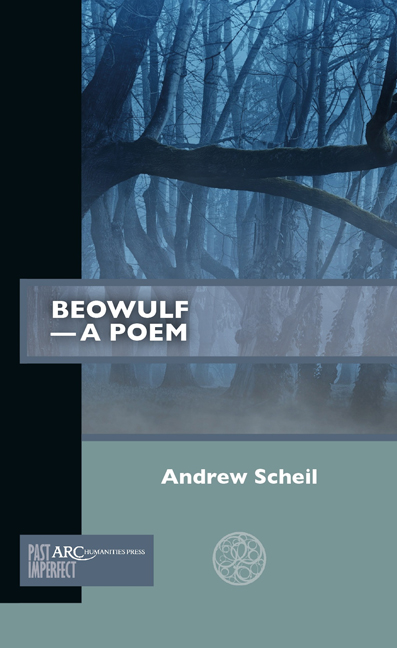Chapter 4 - Art and the Cunning of Form
Published online by Cambridge University Press: 02 March 2022
Summary
So far, I have painted Beowulf's humanist character in sombre tones: the poem's total vision of experience is riven by doubt; dwells upon the human dilemma of contingency; mourns the consequent tragedy of the human story. Our poem would still be a very great work of art if those characteristics were the limit of its vision. However, the relative pessimism of the poem is not its only experience: there is joy and delight here as well. This chapter will show that Beowulf ultimately, like many humanist endeavours, asserts the importance of Art as a counter to its darker imaginings.
One of the essential characteristics of humanism is its emphasis on human ingenuity; in the ability of human beings to use reason to make their way in the world and guide their endeavours; to rely upon innate human faculties as a guide to life and not to fall prey to that which is mystical, irrational, miraculous. In more modern times this results in the humanist emphasis on empiricism, scientific method, and atheism. I submit that there is a version of this humanist impulse in Beowulf, most clearly in in the poem's love for what we might call the “cunning of form.” “Cunning” is generally a pejorative word now: it means using a skill in a secret or deceptive manner for the purposes of deceit. But “cunning” derives from the Old English verb cunnan, “to know”; and “cunning” once denoted not deception, but rather knowledge, learning, wisdom, intelligence; a science (cf. Latin scientia), art, or a craft. “Cunning” was the knowledge of how to do something. So when I say Beowulf delights in the “cunning of form,” I mean that the poem esteems the human shaping of the world through the creativity of the mind and skill of the hand. This is Beowulf's version of the humanist allegiance to reason and rejection of the irrational.
The early medieval view of nature was not a Romantic one: nature was not the source of renewal and transcendence that it would be for Emerson and Thoreau; nature was a harsh force, held at bay by human ingenuity.
- Type
- Chapter
- Information
- Beowulf—A Poem , pp. 79 - 96Publisher: Amsterdam University PressPrint publication year: 2022



